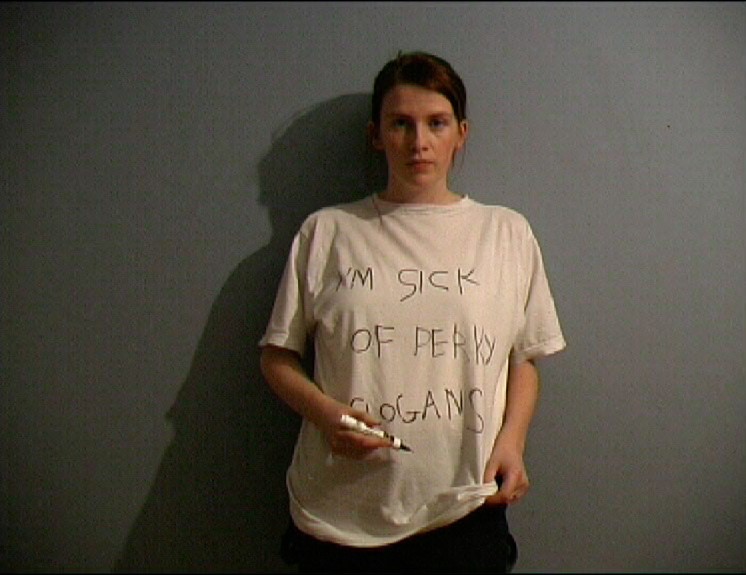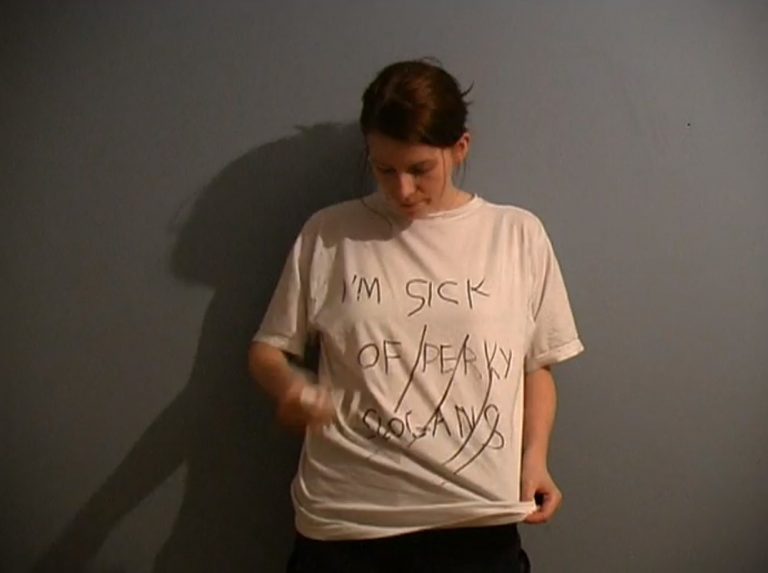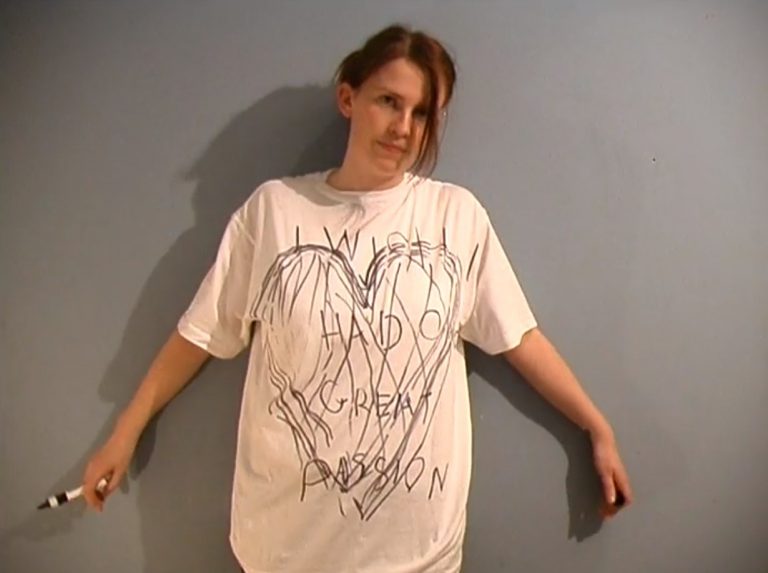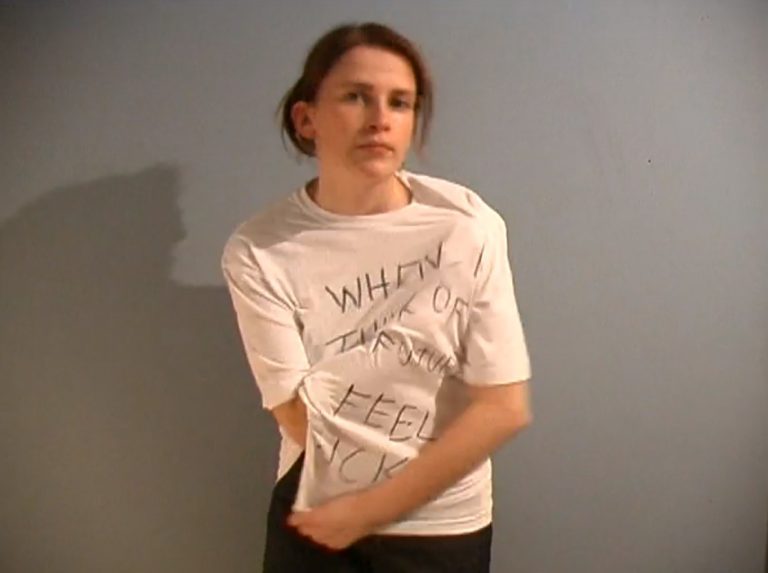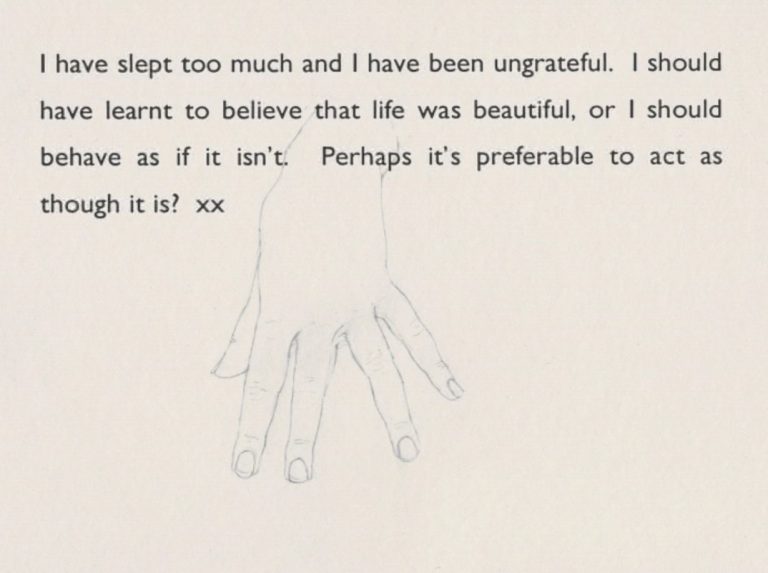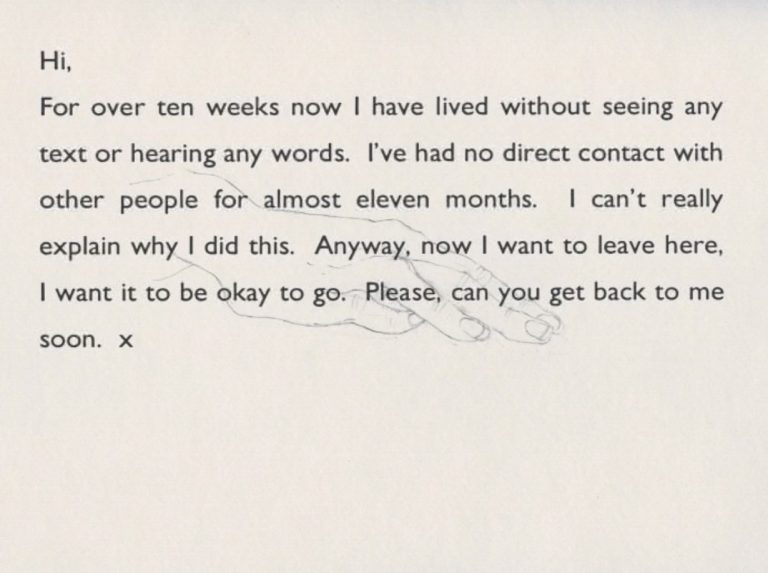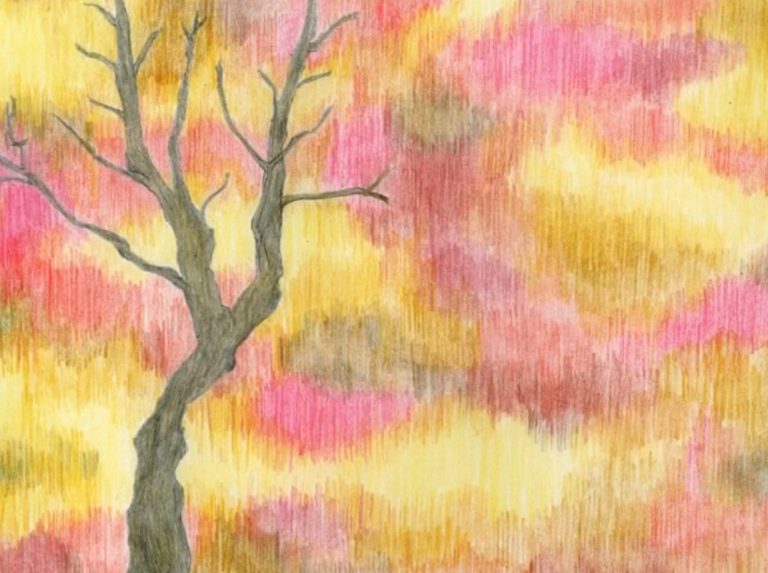IMMA Screen
IMMA Screen is an online screening series showcasing film and video works from the IMMA Collection. New screenings will be available monthly, presenting works by Irish and international artists alongside a new interview and related material from the IMMA Archive.
IMMA Screen is an online screening series showcasing film and videos from the IMMA Collection. New screenings will be available monthly, presenting works by Irish and international artists alongside a new interview and related material from the IMMA Archive. Each work will be accessible online for one month.
Artists’ moving image works have featured extensively in IMMA’s programming history since 1991 and form a key part of the Collection. Recently, many of these works have been digitised from analogue formats such as VHS tape and Laserdisc as part of a large-scale Collection & Programme Digitisation Project funded by the Department of Culture, Heritage & the Gaeltacht. This process preserves the works for the future while also allowing greater access to audiences and researchers. IMMA Screen highlights the Museum’s holdings of moving image work as a significant national collection of artists’ film and video.
Isabel Nolan,
Sloganeering 1-4
The Condition of Emptiness
About the Artist
Additional Information
Additional Information
The first programme for IMMA Screen presents works by six artists over six months. Including Helen Cammock, Phil Collins, Vivienne Dick, Kevin Gaffney, Isabel Nolan and Alanna O’Kelly.
In different ways, these works engage with performance and the role of the camera in the construction and mediation of identity. From Isabel Nolan’s humourous explorations of performed identity in Sloganeering 1-4 (2001), to Phil Collins’ confronting insight into the depiction of war victims by journalists in How to Make a Refugee (2000). In thinking about the psychological implications of newly imposed physical distancing between ourselves and others, the programme invites a timely reflection on the power and politics of representation and the continuous fabrications of the self and the other. A number of these works, including Sanctuary/Wastelands (1994) by Alanna O’Kelly, also deal poignantly with ideas of loss and erasure.
